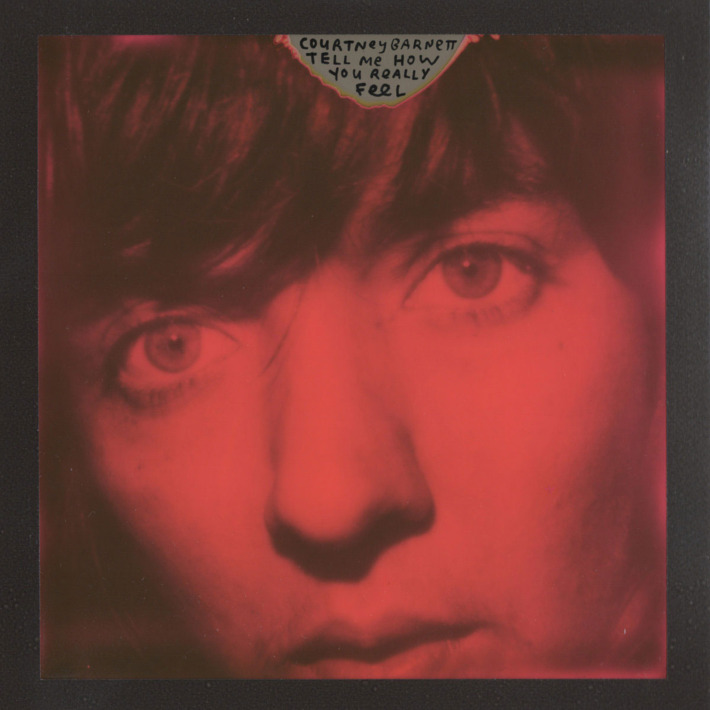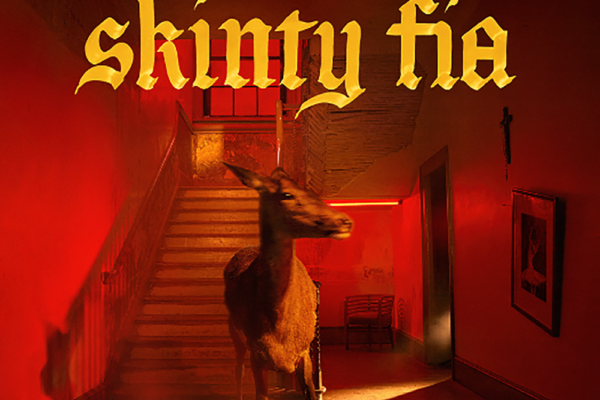Courtney Barnett is simply the best rock star we’ve had in a long, long time, and Tell Me How You Really Feel is her best album so far.
(The Narrator shuts his computer, with a job well done, gets up and goes to the freezer to retrieve a pint of ice cream as reward.)
(Slowly, he realizes that he should say more about the album to give the reader a sense of why Courtney Barnett’s Tell Me How You Really Feel is an amazing record.)
Sorry about that. But seriously, this album is excellent.
For those who have been following her career for the past few years, you’d know that she emerged from the land down under, nearly a fully formed bona fide rock star. You couldn’t call “Avant Gardener” a smash hit on the charts, but it’s the kind of song that will make or break an artist. The problem is that it was so good that she was just as likely to be a one-hit wonder as she was to follow it up with a successful career. That song is both cleverly written and sonically beautiful. Her Australian lilt is one of the pleasures of listening to the American fan, but the wordplay is simply everything.
Following up as she had with “Pedestrian At Best,” was a power play, doubling down on the clever factor and going harder. It’s her signature angle on Sometimes I Sit and Think, and Sometimes I Just Sit, the album title itself a cribbing from Winnie The Pooh, master of a funny line. It is maybe from a life of Pooh, Tigger, and Eeyore that she’s able to come up with lines like “I think you’re a joke, but I don’t find you very funny.” And there’s something so relatable to the way she puts things. Find me one millennial who doesn’t see a little bit of themself in “I want to go out, but I want to stay home.”
That’s part of what makes Tell Me How You Really Feel such an important step.
It’s not so much funny, but it takes that wit and really uses it as a weapon. This was most evident from the first single, “Nameless, Faceless” where she sings: “I wanna walk through the park in the dark/Men are scared that women will laugh at them/I wanna walk through the park in the dark/Women are scared that men will kill them/I hold my keys/Between my fingers.”
It’s a devastating chorus, both to the fragility of men, and the history of patriarchal violence. You think about pricks like Jordan Peterson and his legion of soft incels, and how sad it is that prevents a person from feeling safe walking through the park. Only a songwriter as deft and capable as Barnett could balance this sentiment the edge of a blade in the middle of a rock song.
The album itself is her most album-y album, built around a structure of powerful tunes like that one. It rises from the ether as she tunes up her guitar on “Hopefulessness,” through jaunty tunes like “City Looks Pretty” and “Charity,” which use a biting crisp tone to really carve out space for itself, lest it be lost among her nearly endless stream of words. If you’re not paying attention to her guitar playing, you’re missing out. It cuts like early Buzzcocks, especially in her licks, easy settling her in a long lineage of power-pop/art punk songwriters.
About halfway through, she puts a little weight on with the aforementioned “Nameless, Faceless,” and the surprising “I’m not your Mother, I’m not your Bitch,” which oozes out the way Kurt Cobain tried in later records (I especially thought of the line “I tried to have a father, but instead I got a dad”).
And finally she comes down with the quieter “Walking on Eggshells” and “Sunday Roast,” a song she had been working on since she was 13 years old, according to her live performance at the Music Hall of Williamsburg on May 19 (reminding me of McCartney saying he wrote “I Follow The Sun” when he was close to the same age). It’s a bit like “Depreston” from Sometimes I Sit, in the way that it provides the levity on the album.
Ending the album with it is probably the smartest thing she could have done. The album ends, but the song stays with you. Especially the beautiful melody that codas the song, “I’ve heard all your stories, but I’ll listen to them again.” One hopes that Barnett keeps telling her stories.
Article: Christopher Gilson
Cover Image: Alx Bear





